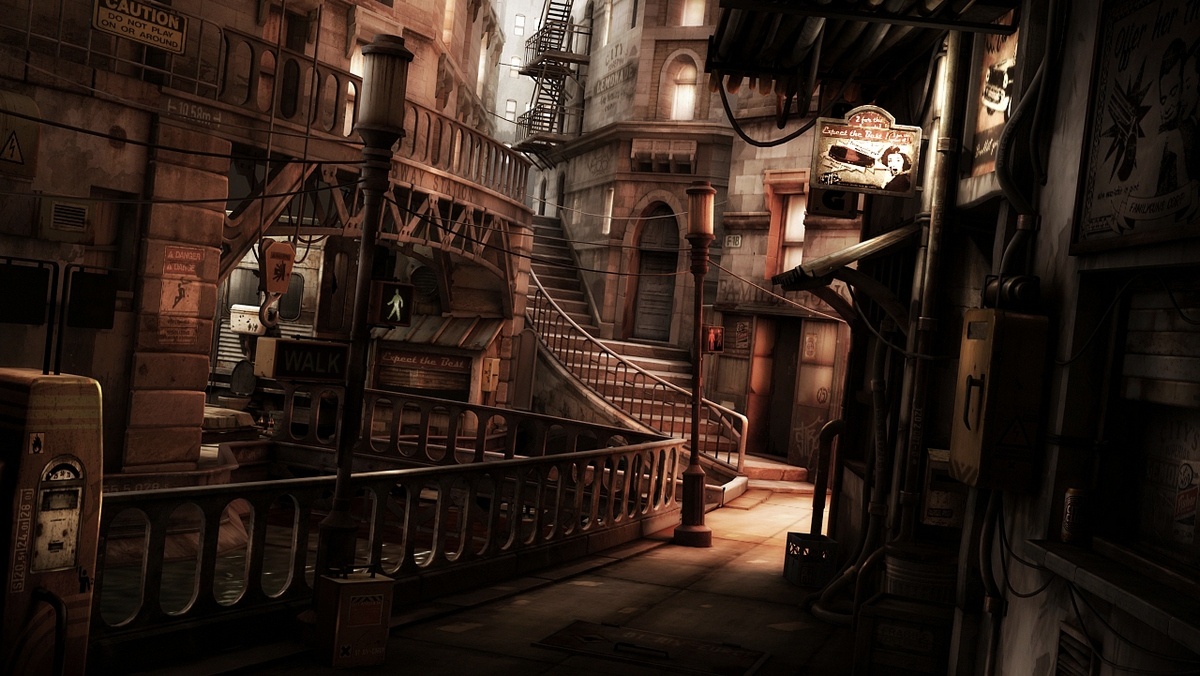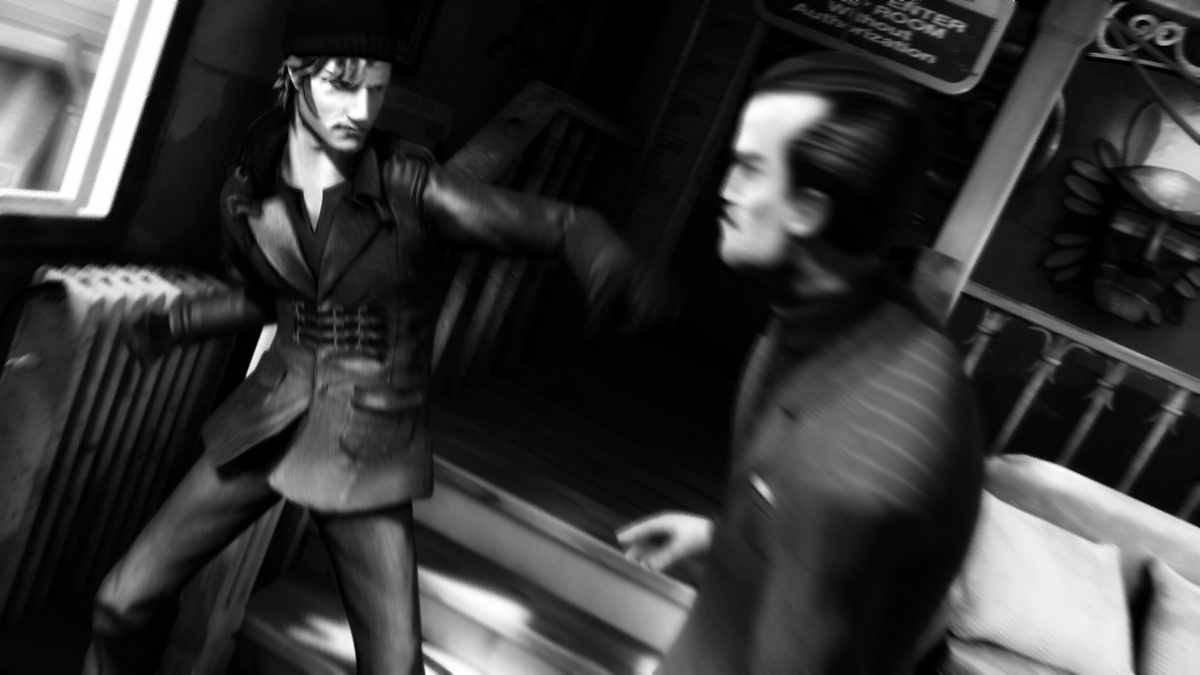How much you enjoy Red Johnson's Chronicles depends on your tolerance for old-school point-and-click adventures. Developer Lexis Numerique has stuck close to the ancient Sierra/LucasArts formula for this crime saga about a private detective, so much so that the game almost founders on an extreme reliance on pixel hunts and logic puzzles. A great sense of style and a ton of challenging puzzles rescue this mystery from adventure-game hell, although anyone with an objection to the eye strain that comes from combing the scenery for clues should stay away from this PlayStation Network exclusive.

Story and setup are about as old and cliched as it gets. You step into the gumshoes of Red Johnson, a young ginger-haired private detective in the city of Metropolis (attention, DC Comics lawyers) helping dimwit cops. The setting is strongly influenced by comic books, with lots of bridges in odd spots and towering city skyscrapers dominating the outdoor scenery. While much of the background scenery and the character art could have been yanked out of a mainstream superhero comic, everything is washed over with surreal touches that take the game out of time and space. Russian fonts are used for all of the game's headline text. Cool, Dave Brubeck-styled jazz underlines everything, even when the visual backdrop is more Blade Runner than film noir. Scenes are loaded with anachronisms. Old desk fans, a filing cabinet loaded with paper files on criminals, a newspaper vending machine from some alternate 1950s, and a snitch out of Starsky and Hutch share space with high-tech computers like an analyzer that helps you slap together clues. Unfortunately, the dialogue is too flat for such striking visuals and sound, especially when Red is called on to interrogate suspects.
Atmosphere in Red Johnson's Chronicles is more remarkable than its gameplay, which sticks to every adventure-game trope in the book. Most of the scenes here are static shots of locales that have to be searched for clues. While these scenes are attractive and interesting, they're loaded with lots of murky corners that make it hard to do much exploring without running into "How the hell was I supposed to spot that?" territory. Most of the scenes feature miniscule objects like spent bullet casings and coins that are tough to see without roaming the (admittedly large) cursor over every inch of the screen. Some clue objects are so dark and perfectly blended into the background that they are absolutely impossible to see. The newspaper vending machine in the first screen of the game is tucked away so neatly that you could easily take 20 minutes to find it. You have access to an in-game help system where you can buy clues from a snitch named Saul, but these hints aren't specific enough to lead you by the nose to a solution. They really come in handy when you can't find all of the clues needed to leave a screen because Saul will, at least, give you a list of everything that's out there, if not the exact location of these little goodies.
Of course, there are also many problems to be solved. Every hurdle has three or four steps to it that generally have to be figured out through a combination of close observation and logic puzzles. Most of the puzzles are challenging, but they are also fairly generic. You slide blocks around, work out codes, connect wiring diagrams, and so forth. Still, they are all tough enough to keep you thinking, and there are so many of them that they suck you in far more thoroughly than the pixel hunts or even the weird setting. The Saul help system is of some assistance here, but again, it's not enough to lead you through a problem from start to finish. Many times, he just tells you what you've already sussed out on your own and then abandons you when you get to the point where you're stuck.

Just a few concessions have been made to the 21st century. Red often has to closely examine locales with a magnifying class and then make his deductions all on his lonesome. None of this is wildly tough, but it does give you more of a hands-on sense of investigating than you might find in point-and-click adventures. Red also regularly encounters quick-time challenges where you need to react to events onscreen with button taps and stick motions. If you fail one step, you go back to square one; if you succeed, you earn a few bucks that can be used to pay Saul for tips. Some of these sequences are totally unnecessary, like the first encounter with Saul where you go through a hand-slapping, fist-pumping greeting that seems about as authentically "street" as an episode of Good Times. Others lead directly into stylish black-and-white brawls. These events are mildly entertaining, though they are too tacked on to feel like an organic part of a mostly traditional adventure game.
Even with the negatives here, Red Johnson's Chronicles is a reasonably intriguing take on a traditional point-and-click adventure, mostly because of its sheer style and the huge number of smart logic puzzles. You need a lot of patience for a very dated style of play and need to really appreciate pixel hunts to stick around long enough to find out whodunit. But in the end, the journey will be worth it to adventure-game devotees looking for a fix on the PlayStation 3.